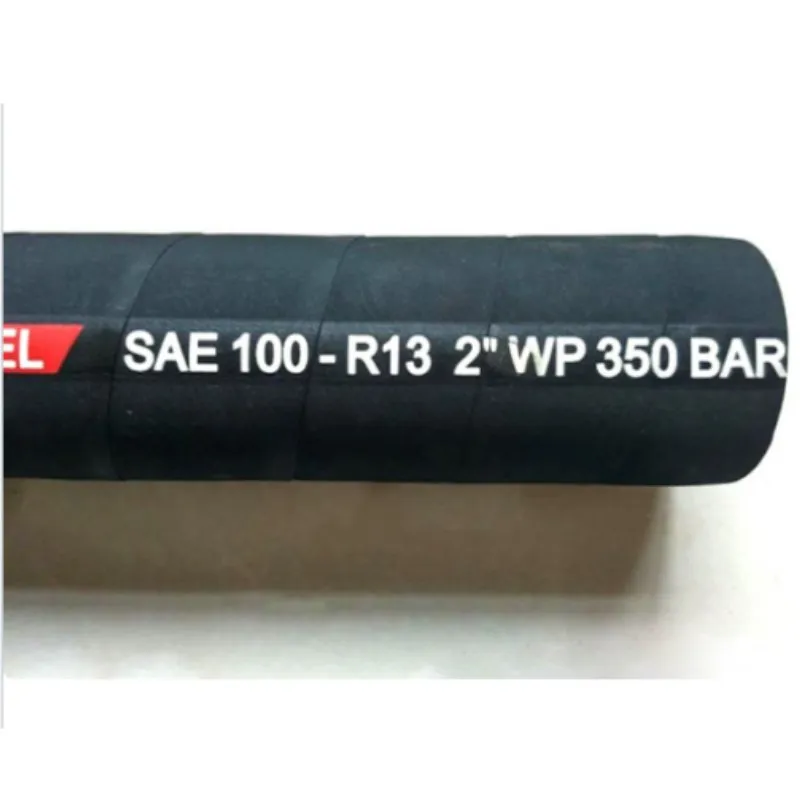dec . 11, 2024 00:42 Back to list
Durable Rubber Fuel Hose for Efficient Fuel Transfer and Performance Enhancement
Understanding Rubber Fuel Hoses Essential Components in Automotive Systems
Rubber fuel hoses are crucial components in automotive systems, connecting fuel tanks to engines and ensuring the efficient flow of fuel within various types of vehicles. Their role is not only to transport gasoline or diesel but also to withstand the harsh conditions inside an engine compartment. This article will delve into the characteristics, types, applications, and maintenance of rubber fuel hoses.
Characteristics of Rubber Fuel Hoses
Rubber fuel hoses are made from high-quality synthetic rubber compounds designed specifically for fuel transport. This specialized rubber possesses various qualities that make it ideal for use in automotive applications. Firstly, it has excellent resistance to high temperatures, which is essential given that engine compartments can reach significant heat levels. Additionally, these hoses are designed to be resistant to the corrosive properties of fuel and other chemical substances, preventing deterioration over time.
Another significant characteristic is flexibility, which allows the hoses to bend and twist without kinking, ensuring a continuous flow of fuel. Some rubber fuel hoses also feature reinforced layers, enhancing their durability and preventing structural failure under pressure. This is particularly important for high-performance vehicles or those that operate under extreme conditions.
Types of Rubber Fuel Hoses
There are various types of rubber fuel hoses available in the market to cater to different vehicle needs. The two most common types are fuel injection hoses and fuel return lines. Fuel injection hoses are designed to withstand higher pressures, as they transport fuel directly to the engine's fuel injectors. In contrast, fuel return lines typically operate at lower pressures, returning excess fuel from the engine to the tank.
Moreover, there are special hoses designed for specific fuels, such as ethanol-blended fuels or biodiesel. These hoses contain additives that enhance their resistance to the specific chemicals found in these fuels, ensuring longevity and reliability.
rubber fuel hose

Applications of Rubber Fuel Hoses
Rubber fuel hoses are widely used in various automotive applications, spanning from passenger vehicles to heavy-duty trucks. They are essential in not only conventional combustion engine vehicles but also in performance racing cars, commercial vehicles, and even some hybrid systems. These hoses play a critical role in the proper functioning of fuel delivery systems, which directly affects engine efficiency and performance.
Furthermore, rubber fuel hoses are used in other industries, such as aviation and agriculture, where fuel transport is necessary. The versatility of these hoses allows them to adapt to different mechanical systems and fuel types, making them a vital component across various sectors.
Maintenance and Safety Considerations
To ensure the longevity of rubber fuel hoses, regular maintenance is crucial. Owners should periodically inspect hoses for signs of wear and tear, including cracks, leaks, or bulges. Any damage should be addressed immediately, as compromised hoses can lead to fuel leaks, posing significant safety hazards such as fires or explosions.
Additionally, when replacing rubber fuel hoses, it is essential to select hoses that meet the required specifications for your vehicle model. Using substandard or incompatible hoses can result in poor performance and increase the risk of failure.
In conclusion, rubber fuel hoses serve as an integral component within automotive systems, ensuring the safe and efficient transport of fuel. Their unique characteristics and versatility make them essential not just in cars but across various industries. With proper maintenance and awareness of their specifications, these hoses can provide reliable service throughout their lifespan, contributing to the overall performance and safety of vehicles. As technology advances, the development of even more resilient materials may further enhance the future of rubber fuel hoses.
-
3 Rubber Hose - High-Pressure Flexible Hydraulic Solutions
NewsMay.21,2025
-
1 1/2 Hydraulic Hose - High-Pressure Flexible Rubber Hose Solutions
NewsMay.21,2025
-
Spiral Hydraulic Rubber Hose - High-Pressure, Durable & Flexible
NewsMay.21,2025
-
Flexible High Pressure Hydraulic Hose Durable & High-Performance Solutions
NewsMay.20,2025
-
1.5 Rubber Hose - Durable High-Pressure Hydraulic Hose Solutions
NewsMay.20,2025
-
Custom Flexible Metal Hose Manufacturer - Durable & Corrosion-Resistant
NewsMay.19,2025
